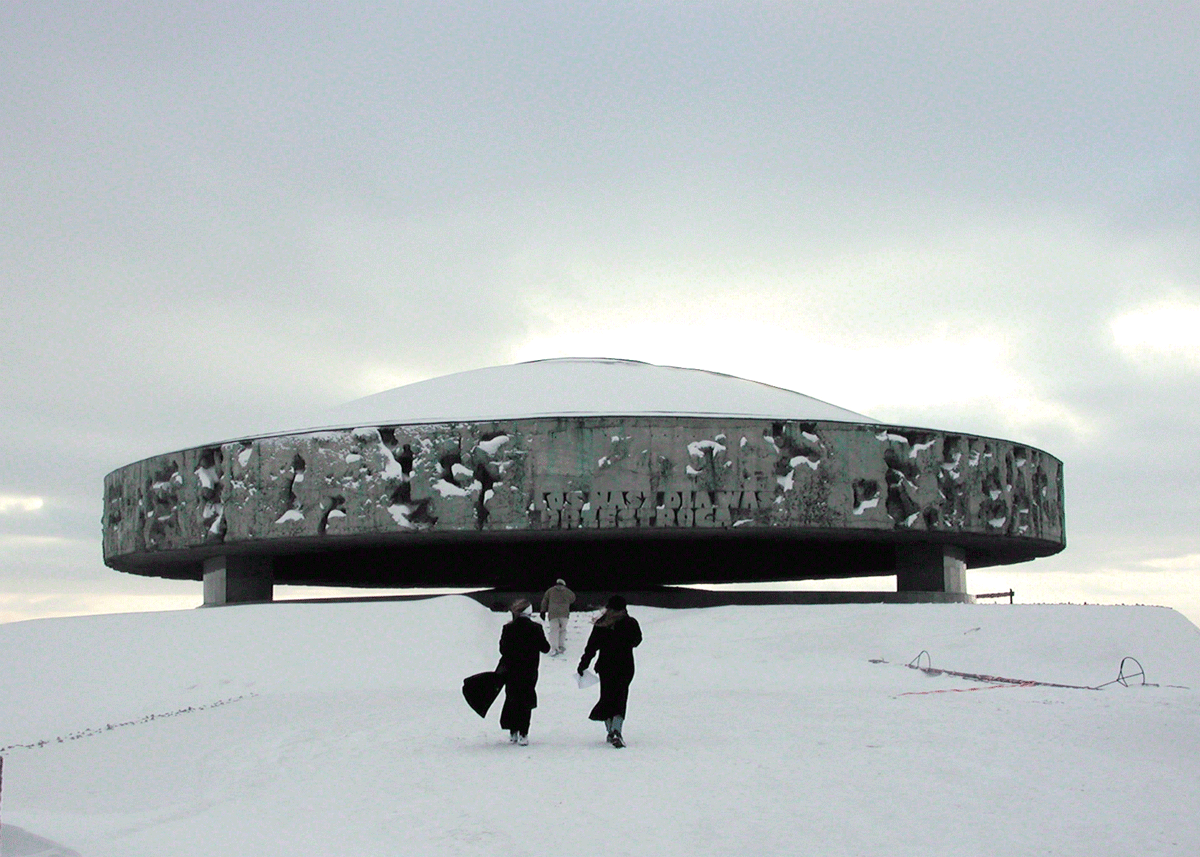
Dr. Benedykt Ziemilski (1892-1942) was a father, doctor, soldier, and scientist. On his way to Warsaw, he was arrested at Lublin station and taken to Majdanek.
Memorial at Majdanek death camp.
RESCUING THE MEMORY OF THE SIX MILLION: ONE BY ONE BY ONE
The remarkable story of Dr. Benedykt Ziemilski
Ever since I became involved in Holocaust education over 35 years ago, one of my personal missions has been to tell the stories of Holocaust victims, the mere fact of whose existence may have been lost to history. As has been said before by others, 6 million Jews did not perish in the Holocaust. They were each murdered, one by one by one until the number of 6 million was reached. In other words, each victim had a life, had a purpose, a unique contribution to make to the world. When we remember their individual lives, in some small way, we fight back against Hitler's genocidal intentions. We redeem them from the anonymity and the obscurity that Hitler attempted to sentence them to.What follows is one example of a life I've been trying to liberate from disappearance ever since I came across this story. The story was first brought to my attention by my dear friend Dzieduszycka, former Consul General for Poland in Montreal, during one of my visits to Poland.
The life I became interested in was that of Dr. Benedykt Ziemilski ((1892-1942) the father of Malgorzata’s late husband Polish sociologist and writer Andrzej Ziemilski (1923–2003). Dr. Benedykt Ziemilski was murdered in the Nazi German death camp of Majdanek sometime in 1942.
In 1942, Dr. Benedykt Ziemilski and his family tried to escape by train to Warsaw. He was arrested at the Lublin station and taken to Majdanek. The family never saw him again. Among the letters that arrived in his apartment after his death were two letters in German from my Majdanek, informing the family that Dr. Benedykt Ziemilski was dead. The second was a short letter from Bayer, referring to an important component of a drug invented by Dr. Ziemilski. In effect, one German letter recognizing his brilliance, the other letter announcing his murder.During the 2021Virtual March of the Living (the in-person March was cancelled because of the Covid 19 pandemic), we commemorated Yom Hashoah with a special online program on the theme of “Medicine and Morality: Lessons from the Holocaust and COVID-19.” During the memorial program, a candle lighting ceremony was performed honoring the medical professionals who opposed the Nazis in the Holocaust. A candle was also lit in memory of the victims of COVID-19.One of the six candles was lit in honor of Dr. Benedykt Ziemilski by Dr. Allen Nager, Director, Division of Emergency and Transport Medicine and Professor of Clinical Pediatrics at the Keck School of Medicine of USC.
This was the first time Dr. Benedykt Ziemilski’s story was given significant public recognition, both for his pioneering work as a medical doctor in pre-war Poland, and for his death as a Polish Jew, one of Hitler’s six million Jewish victims, who were murdered, one by one, by one.But with this modest effort, we have redeemed the memory of at least one remarkable soul, one of so many.
Eli Rubenstein
Eli Rubenstein served as National Director of March of the Living Canada from 1988-2023. Since 2005, he has served as Director of Education at the International March of the Living
Dr. Alan L. Nager, Director, Division of Emergency and Transport & Professor of Clinical Pediatrics, Keck School of Medicine at USC in Los Angeles, California, lit the candle, recognizing him as a medical professional who opposed the Nazis in the Holocaust
"They Were Heroes Too" is Based on the testimony of Zbigniew Mankowski, a Polish Righteous Among the Nations from 1929 to 2020.
Wojtek Ziemilsk shared his story about his grandfather, Dr. Benedykt Ziemileki, who perished in the Holocaust on the 2000 March of the Living program.
Edited by Eli Rubenstein

